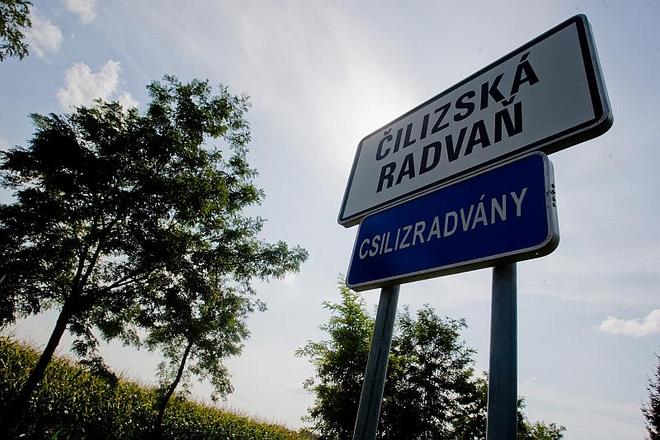NATIONALITY will be among the key questions in the national census that will be conducted this spring in Slovakia. Along with the much-debated change in the threshold for mandating that minority languages are to be used in municipalities, the actual count of minority citizens that results from this census will also determine where a minority language must be officially recognised and used. Representatives of ethnic Hungarians, whose officially-recorded population is expected to drop again in this census, have already started campaigning for ethnic Hungarians living in Slovakia’s southern districts to state their nationality as Hungarian when completing the census question.
The question about a resident’s national identity offers 14 specific choices plus a blank field if none of the listed nationalities corresponds with the person’s professed nationality. The choices are Slovak and the 13 officially recognised national minorities living in Slovakia: Hungarian, Roma, Ruthenian, Ukrainian, Czech, German, Polish, Croatian, Serbian, Russian, Jewish, Moravian and Bulgarian.
The results of the census will have an impact on whether a minority language will be designated as one that must be spoken or written in a certain municipality in official communications. The current threshold in Slovakia is when a municipality has 20 percent or more of its residents from a specific minority. The municipality is then designated a bilingual municipality in which certain rights for the minority become obligatory. Rudolf Chmel, Slovakia’s Deputy Prime Minister for Human Rights and National Minorities, is now proposing to lower this threshold to 15 percent.
Chmel is encouraging members of national minorities to state their professed nationality when completing the census form.
“When collecting statistical data for the census, we expect members of minorities to be serious not only about the economic and social information, but also about belonging to the national community from which they derive their identity or with which they are culturally linked,” Chmel wrote in a statement, adding that this will be particularly important for those minorities who are perceived by the majority through negative stereotypes.
Hungarians to campaign
The 2001 census counted over 520,000 ethnic Hungarians living in Slovakia but experts have said that the recorded population could drop by as many as 60,000 in the 2011 census. In 2001, the number was almost 50,000 less than in 1991.
Sociologists have said that the drop in the number of ethnic Hungarians recorded in the census could be attributed to demographic changes as about 1,000 more ethnic Hungarians die each year than are born to ethnic Hungarian families.
But Boris Vaňo from the Demographic Research Centre also pointed out to the SITA newswire that nationality in the census is determined on a declaratory principle: a person states their nationality.
“Assimilation is an existing phenomenon and we must create a political atmosphere that will make minorities feel at home in Slovakia,” László Juhás, the head of the Section for National Minorities at the Government Office, told SITA.
Politicians who represent ethnic Hungarians have conceded that the number of ethnic Hungarians counted in the 2011 census might decrease again and they have started campaigns to inform ethnic Hungarians living in Slovakia about the census and to encourage them to state their nationality as Hungarian.
“I believe the concerns are appropriate,” said Béla Bugár, the chairman of political party Most-Híd, as quoted by SITA. “Natural assimilation is picking up pace.”
Bugár also stated that he was worried that a hostile approach towards minorities that was taken by the previous government of Robert Fico might negatively influence the willingness of people to mark their nationality as Hungarian on the census form.
Roma seek more information
The Council of Non-Governmental Organisations of Roma Communities (RMORK) has stated that it believes the scope of the public awareness campaign leading up to the 2011 census is insufficient. Ladislav Richter, the head of RMORK, complained that awareness information will not reach certain segregated parts of the country that are home to many Roma, the TASR newswire reported, and that this might impact as many as 20,000 residents.
Richter also said that he was worried that the lack of a strong information campaign will affect thousands of other Roma who are integrated with the majority population. They are “worried of persecution and after experiences with extremists in recent years, or racist statements by several Slovak politicians, they are considering whether or not to admit their nationality”, Richter stated, as quoted by TASR.
He said that the lack of a proper information campaign could cause the number of Roma counted in the census to drop and added that this would result in a permanent cut in funds, particularly for Roma cultural programmes.



 The percentage of minority residents determines whether a municipality has bilingual signage. (source: Sme -V. Šimíček)
The percentage of minority residents determines whether a municipality has bilingual signage. (source: Sme -V. Šimíček)